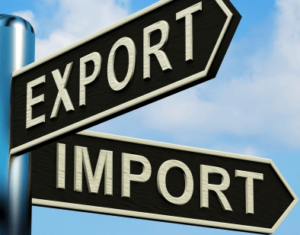Migration experts call for social cohesion to enhance trade and development
 Migration experts have called for social cohesion among both countries of origin and host countries within Africa to enhance growth and development.
Migration experts have called for social cohesion among both countries of origin and host countries within Africa to enhance growth and development.
They also emphasised the need for host countries to leverage on contributions of migrants to the development of their economies and develop policies that will enhance their livelihoods and peaceful coexistence.
According to them, research has shown that between 80 and 84 per cent of migration in Africa is intra-regional and called for inter-governmental approach to enhance migration.
Dr Frank Ayisi, a Fellow at Migration Advocacy Center, speaking on “Relevance of Regional Integration in the context of Migration and Development”, said migration should be mainstreamed into developmental agendas of all levels.
He said the country needed to include migration issues in the developmental efforts of the country to ensure that no one was left behind as enshrined in the Sustainable Development Goals.
Mr. Ayisi was speaking at a day’s Community Dialogue Session organised by the Migration Advocacy Center (MAC) under the Migration for Development and Equality (MIDEQ) research project.
The dialogue brought together the leadership of migrants’ associations in Ghana, Ghana Union of Traders Association, Association of Ghana Industries, and policy makers to identify challenges of host community actors and migrants in Ghana and how to address those challenges to build social cohesion.
The Community Dialogue, forms part of series of activities under the project “Strengthening Migrant Solidarity-Building Initiatives in Ghana” being implemented MAC in collaboration with the Centre for Migration Studies (CMS), University of Ghana and University of Cape Town, South Africa.
Mr Ayisi said migration in general has more to offer both countries of origin and host countries if well harnessed.
Mr Festus Owooson, the Project Co-Lead, MAC, said the project constitutes a component of the MIDEQ research project with a particular focus on Transnational Mobilisation and Political Solidarity, which largely, seeks to ensure that countries implement good policies to improve livelihoods of migrants and host communities.
He said MIDEQ also aimed to transform understanding of the relationship between migration and inequality in the context of the Global South by decentering the production of knowledge about migration and its consequences away from the Global North towards those countries where most migration takes place.
Mr Owooson said the project further recognises the relative peaceful coexistence that continue to exist among some categories of migrants and indigenes in Ghana’s business sector despite the contentions that have bedeviled the sector over the past several years.
It also seeks to create avenues for enhancing such a cordial relationship while working together with relevant actors to promote positive narratives of migration as well as to promote a better understanding of host community conditions thereby reducing, if not eliminating them.
Professor Akosua Darkwah, a Member of MIDEQ Work Package-7 Team, said harmonisation through social cohesion was crucial for national development.
She stressed the need to strengthen the systems to work effectively to ensure the fast-tracking of documentation as well as to enable migrants acquire the necessary documents within a short period as is being done in the developed countries.
The leadership of migrants’ associations and GUTA bemoaned alleged corruption, harassment and unnecessary delays at the borders and appealed to the border authorities to call their officers to order.
A similar community dialogue by MAC was held on May 25, 2023 at the Gomoa Buduburam Refugee Camp in the Central Region.
Source: GNA
